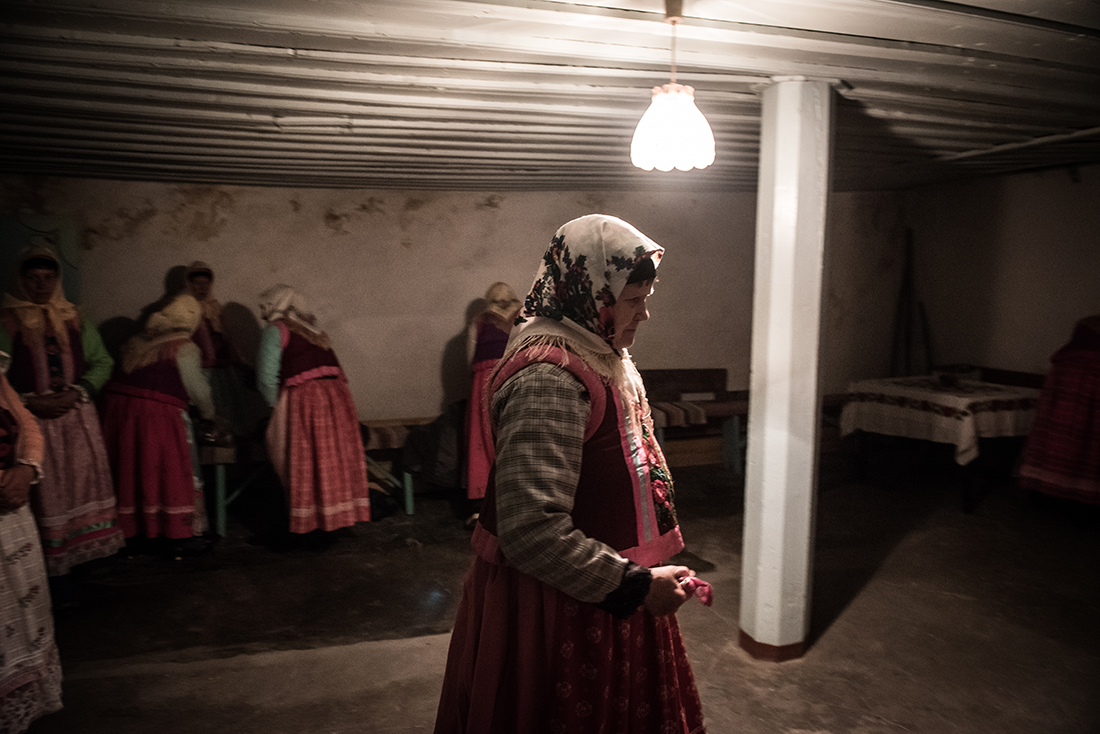Photojournalism - NOMINEE: Mattia Vacca
Mattia Vacca
The Russian Doukhobors' disappearing minority in Georgia
Support this photographer - share this work on Facebook.
The Doukhobors have left Russia since Tsar Nicholas I exiled them in the 1840s. They settled their community in remote Georgian villages among the border with Armenia and Turkey at almost 2500 meters of altitude.
They are a Christian sect that believed God resides within every person, rendering the need for the church and all its trappings—icons, buildings, rituals, even priests—unnecessary. These views did not endear themselves with the Russian Orthodox Church, and in 1785, an archbishop gave them the name Doukhobors, which means “spirit wrestlers”. It was an insult, but they embraced it. They believe in a native pacifism and ecological behaviuors. They founded eight villages in the distant peaks of what is now the Republic of Georgia’s Javakheti region. Altough the long and cold winters, Doukhobors’ have created a fairy tale land with tidy towns of sod-roofed homes and carved wooden shutters painted in blue. In Gorelovka, once their spiritual center, there are 145 left. Few families, mostly composed by the only old person left, populate the other villages. Their ineluctable exodus north could spell the end of an entire culture.
A letter the novelist Lev Tolstoy wrote in 1898 to a newspaper talks about the Doukhobors’ plight. “The government of the Caucasus has surrounded the whole rebellious population with a magic circle, and this population is slowly dying out. In some years it is possible there could be no more Doukhobors left,”. Tolstoy sent money to build a school in Gorelovka that still bears his name. Here the Doukhobors are outnumbered at least 15-to-1 by the majority Armenians who have been taken the control of the region since the fall of the Soviet Union. “We are all moving further for civilization, we have computers, phones, we are leaving abroad but press the button and all of our civilization will going to die, we will return to land. When you know where your roots are seated you are not that easy to take away from road.” Vasily Slastukhin, a community’s member, explains. But the Doukhobors’ sad future of disappearance is getting closer.
About author:
Mattia Vacca is a freelance photojournalist and a documentary photographer.
For ten years, he was a daily contributor for Corriere della Sera covering breaking news stories in Northern Italy.
He is currently working on various personal projects focused on social issues and the consequences of armed conflicts around the world.
He is the founder of the independent publishing house Delicious Editions. His first photobook “A winter’s tale” came out in 2014, in 2018 he published the photobook “Confine”; a collective narrative about how the city of Como, on the border between Switzerland and Italy, became a refugee camp.
In 2018 he joins Prospekt Agency.
His work has been featured on New Republic, Wired, The Guardian, The Independent, Die Zeit, BBC, Vice, Vanity Fair, among the others.
He received numerous awards, including Sony World Photography Awards, Royal Photographic Society Awards, Unesco Humanity Photo Awards, New York Photo Awards.
His photographs have been exhibited in galleries and festivals worldwide.
He was also a TEDx speaker.

